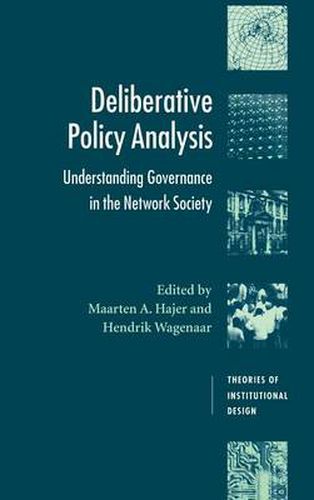Readings Newsletter
Become a Readings Member to make your shopping experience even easier.
Sign in or sign up for free!
You’re not far away from qualifying for FREE standard shipping within Australia
You’ve qualified for FREE standard shipping within Australia
The cart is loading…






What kind of policy analysis is required now that governments increasingly encounter the limits of governing? Exploring the new contexts of politics and policy making, this book presents an original analysis of the relationship between state and society, and new possibilities for collective learning and conflict resolution. The key insight of the book is that democratic governance calls for a new deliberatively-oriented policy analysis. Traditionally policy analysis has been state-centered, based on the assumption that central government is self-evidently the locus of governing. Drawing on detailed empirical examples, the book examines the influence of developments such as increasing ethnic and cultural diversity, the complexity of socio-technical systems, and the impact of transnational arrangements on national policy making. This contextual approach indicates the need to rethink the relationship between social theory, policy analysis, and politics. The book is essential reading for all those involved in the study of public policy.
$9.00 standard shipping within Australia
FREE standard shipping within Australia for orders over $100.00
Express & International shipping calculated at checkout
What kind of policy analysis is required now that governments increasingly encounter the limits of governing? Exploring the new contexts of politics and policy making, this book presents an original analysis of the relationship between state and society, and new possibilities for collective learning and conflict resolution. The key insight of the book is that democratic governance calls for a new deliberatively-oriented policy analysis. Traditionally policy analysis has been state-centered, based on the assumption that central government is self-evidently the locus of governing. Drawing on detailed empirical examples, the book examines the influence of developments such as increasing ethnic and cultural diversity, the complexity of socio-technical systems, and the impact of transnational arrangements on national policy making. This contextual approach indicates the need to rethink the relationship between social theory, policy analysis, and politics. The book is essential reading for all those involved in the study of public policy.